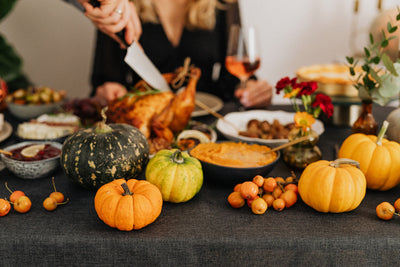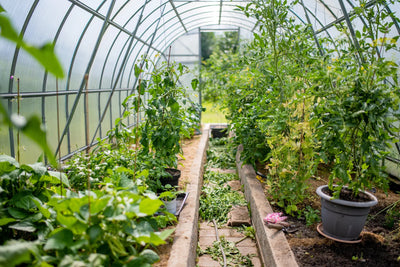Growing a survival garden is a great way to ensure a steady supply of fresh produce in times of need. However, maintaining a healthy and productive garden can be challenging, especially when it comes to controlling pests and diseases. While chemical pesticides are effective, they can be harmful to the environment and potentially hazardous to human health.
In this post, we will discuss natural pest control methods that can be used by survival gardeners to protect their crops without resorting to synthetic chemicals. Browse our Tools & Amendments learn how to maximize your survival garden arsenal against pests.
Install Bat Houses
Bat houses can be a valuable addition to any survival garden. Not only do bats eat a large number of insects, including mosquitoes and moths, but they can also help pollinate plants. Installing bat houses in your garden can provide a safe and comfortable habitat for these beneficial animals, helping to control pests naturally.

Attract Beneficial Insects
One of the most effective ways to control pests in a survival garden is to attract beneficial insects such as ladybugs, lacewings, and hoverflies. These insects are natural predators of pests such as aphids, mites, and whiteflies. By planting flowers such as dill, cilantro, and marigold, you can create an environment that is attractive to these beneficial insects. Additionally, using companion planting techniques, where certain plants are grown together to provide mutual benefits, can also help attract beneficial insects and control pests.
Use Natural Repellents
There are many natural repellents that can be used to keep pests away from your survival garden. For example, spraying a mixture of garlic, onion, and hot pepper on plants can deter pests such as caterpillars, slugs, and snails. Similarly, planting herbs such as basil, mint, and thyme can help keep mosquitoes, flies, and other insects away. Another natural repellent that is effective against deer and rabbits is blood meal, which can be sprinkled around plants to deter these pests.

Make Use of Organic Pest Control Products
There are many organic pest control products available that can help control pests and diseases in your survival garden. For example, neem oil is a natural pesticide that is effective against a wide range of pests, including aphids, spider mites, and whiteflies. Other organic pest control products include insecticidal soap, which can be used to control soft-bodied insects such as aphids and mealybugs, and Bacillus thuringiensis, which is a natural bacterial pesticide that is effective against caterpillars and other insect larvae.
Practice Good Hygiene
Practicing good hygiene is an important aspect of pest and disease control in a survival garden. This includes removing dead plant material, regularly weeding and removing debris, and rotating crops to prevent the buildup of pests and diseases. Additionally, providing proper soil nutrition through the use of compost and other organic fertilizers can help strengthen plants and make them more resistant to pests and diseases.

Natural pest control methods are an effective and environmentally friendly way to protect your survival garden from pests and diseases. Attracting beneficial insects, using natural repellents, using organic pest control products, practicing good hygiene, and installing bat houses are all strategies that can be used to keep your garden healthy and productive. By using these natural methods, you can ensure that your survival garden provides a steady supply of fresh and nutritious produce, even in times of crisis.
Next Steps
Consider adopting a survival garden for the security of your food source for years to come. You could quickly improve your own health and that of your garden simultaneously. Ready to take the next steps? Get everything you need to help your survival garden flourish, from survival seeds to bat houses and tools.











